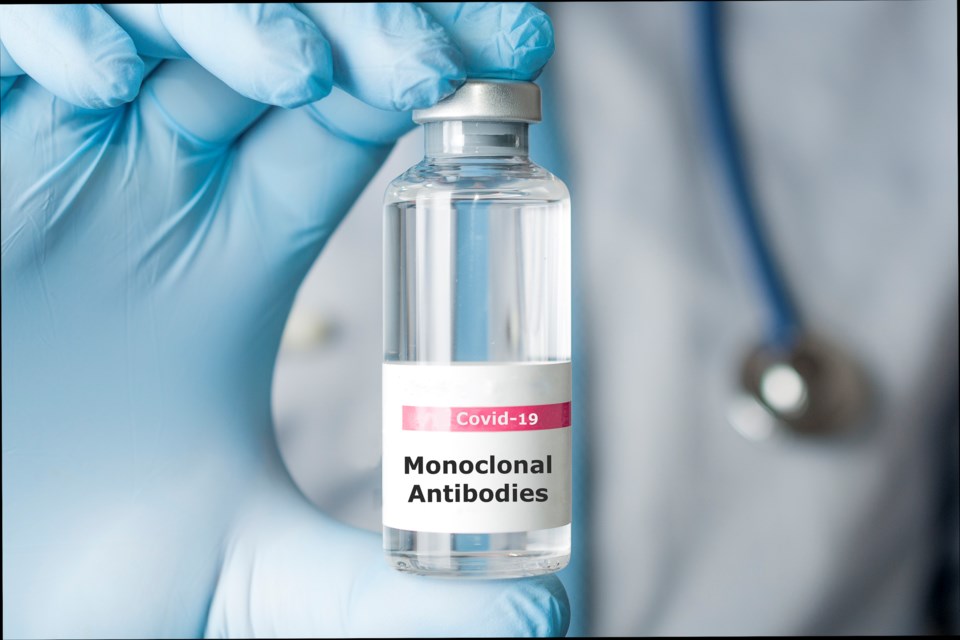REGINA — Saskatchewan patients will have access to monoclonal antibody treatment for COVID-19 complications beginning today, says the Saskatchewan Health Authority.
Monoclonal antibodies will be used as an early treatment method for clinically identified patients, such as unvaccinated individuals or severely immunosuppressed residents, to avoid future hospitalization.
Health Minister Paul Merriman said previously at the end of September that the province was seeking delivery of such treatments, as a measure to aid the struggling health care system.
The treatment utilizes laboratory-made antibodies, needed to provoke an autoimmune response that may prevent more serious illness. It is delivered intravenously, as a one-time treatment.
Monoclonal antibodies will be made available as an option to those within five days of being symptomatic, to prevent more severe illness.
The treatments will be coming to SHA-operated testing and treatment sites in Regina and Saskatoon only, due to staffing and supply.
The SHA said that patients will need a referral to receive antibody treatments, which will be delivered on the decision of the treating clinician.
“Eligible patients will be identified through the case investigation process,” said the SHA.
Eligibility self-assessment will begin on Nov. 1, where residents can express interest in treatment, book an assessment, at which time a clinician will review and refer them appropriately.
The SHA also said that the introduction of monoclonal antibody treatment to the province is not meant to substitute for vaccination.
“Contracting and being treated for COVID-19 does not offer an equivalent protection to vaccination,” said the SHA.
Vaccination will still be available to those who receive the treatment, said the SHA, and the push to seek vaccination remains.




